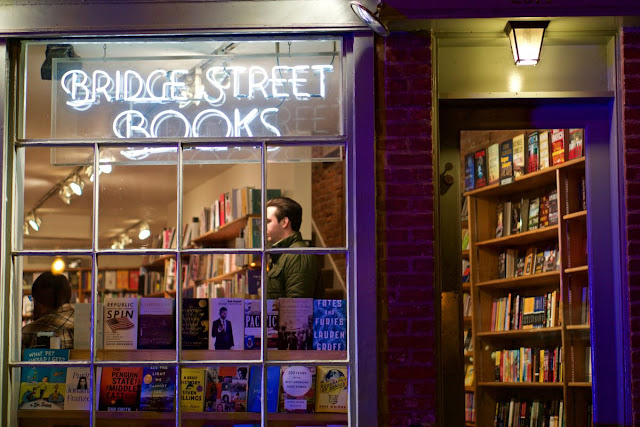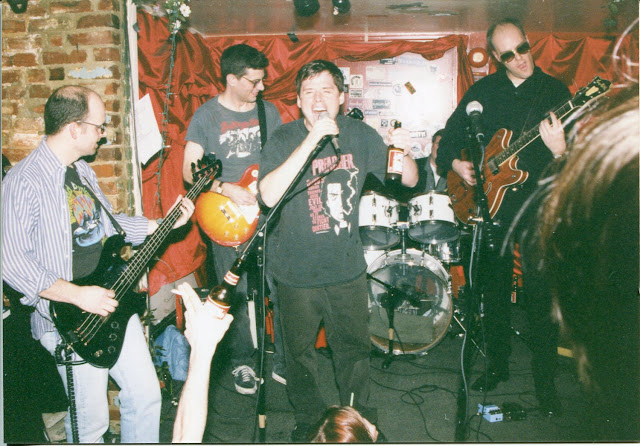Leslie Bumstead in Conversation with Alyse Knorr, Aaron Winslow, and Tom Doyle
Leslie Bumstead will read from her work on 1-26-18 at The Black Squirrel in Washington, DC 8:00PM. Join the event on Facebook.
Leslie Bumstead, Author of Cipher/Civilian
CL: Where was this photo taken? How does it represent your creative life?
Leslie: This picture was taken at my desk in my house. I’ve had this desk for most of my adult life, I realize as I’m writing this. I left it behind when I lived outside of the US, but other than those years, it has been my writing place.
I show up here every day at about 5:30 am. It’s quiet and dark and my favorite time of day. I can write and read and drink coffee and pretend there’s nothing else in the world to be done. These early hours are when I generate most of my poems; I can work on them at other times of day, but the initial creation usually happens before dawn.
CL: Respond to the following popular quote on creativity?
Tom: Yeah, the flip of that is sometimes the trouble is figuring out where the cool thing I've written should go, and shoehorning other writing around it to make it work (even if that just means making it shine in its proper light). Because of what you've described, I'm not a plotter, I'm a pantser with trajectory. Being a complete plotter/outliner would be too much like proposal writing for me.
Alyse: I love what y’all have said here. I completely agree, Leslie, though I’ve never articulated it before, how taxing it can often feel to write a communicative document for a set purpose and audience. I, too, am more interested in how E.M. Forster puts it: “How do I know what I think until I see what I say?” I agree, too, that half of writing is getting out of one’s way, stopping the “thinking” process with prompts that let you come in at that “slanted” angle that will yield a creative outcome. This often blows my writing students’ minds—the idea that you shouldn’t have a big idea before you start, and that writing is often about “tricking” your brain into a creative space.
Leslie: Yes! especially the last part about blowing your students minds about tricking your brain. This is my mantra to writing students. It’s particularly interesting in my prison class because the students, many of whom didn’t finish high school and were never in an artistic environment, have never encountered this concept before. The idea that writing is an exploration, and that words can lead you to new places in real time, is a tough sell. I’m constantly trying to think of ways to get them to trick their brains. (I’m not trying to imply anything here about education being related to creativity—as I think conventional education is its enemy).
Leslie Bumstead is the author of Cipher/Civilian (Edge) and Hereafter. Her work has appeared in Not for Mothers Only, Boog City, Hotel Amerika, Open Letters, and elsewhere. She co-founded So To Speak in 1993 and co-edited the one-volume wonder, Crow, with Rod Smith. She teaches writing workshops and manages programming at RhizomeDC, a nonprofit community art space in Takoma DC: www.rhizomedc.org.
Leslie Bumstead, Author of Cipher/Civilian
 |
| Photo Credit: Douglas Farah |
CL: Where was this photo taken? How does it represent your creative life?
Leslie: This picture was taken at my desk in my house. I’ve had this desk for most of my adult life, I realize as I’m writing this. I left it behind when I lived outside of the US, but other than those years, it has been my writing place.
I show up here every day at about 5:30 am. It’s quiet and dark and my favorite time of day. I can write and read and drink coffee and pretend there’s nothing else in the world to be done. These early hours are when I generate most of my poems; I can work on them at other times of day, but the initial creation usually happens before dawn.
CL: Respond to the following popular quote on creativity?
Leslie: The writing experiments I love most, and what I do in my own writing practice, are predicated on this idea. The poem almost always begins with writing without knowing where I'm going or what I'm talking about. I don’t think when I write, I just write. Words suggest other words. I adore this activity. I’ve done this for so long that sometimes when I have to write something intentionally for an audience (proposal, class description, bio, article, etc.), I find it wildly taxing. I don't like having to use words to express the thought I know I have. I want words to create the thought I didn't know I had, or haven’t even had yet—the articulation creating the awareness/thinking.“Don’t think. Thinking is the enemy of creativity. It’s self-conscious, and anything self-conscious is lousy. You can’t try to do things. You simply must do things."
—Ray Bradbury
Tom: Yeah, the flip of that is sometimes the trouble is figuring out where the cool thing I've written should go, and shoehorning other writing around it to make it work (even if that just means making it shine in its proper light). Because of what you've described, I'm not a plotter, I'm a pantser with trajectory. Being a complete plotter/outliner would be too much like proposal writing for me.
Alyse: I love what y’all have said here. I completely agree, Leslie, though I’ve never articulated it before, how taxing it can often feel to write a communicative document for a set purpose and audience. I, too, am more interested in how E.M. Forster puts it: “How do I know what I think until I see what I say?” I agree, too, that half of writing is getting out of one’s way, stopping the “thinking” process with prompts that let you come in at that “slanted” angle that will yield a creative outcome. This often blows my writing students’ minds—the idea that you shouldn’t have a big idea before you start, and that writing is often about “tricking” your brain into a creative space.
Leslie: Yes! especially the last part about blowing your students minds about tricking your brain. This is my mantra to writing students. It’s particularly interesting in my prison class because the students, many of whom didn’t finish high school and were never in an artistic environment, have never encountered this concept before. The idea that writing is an exploration, and that words can lead you to new places in real time, is a tough sell. I’m constantly trying to think of ways to get them to trick their brains. (I’m not trying to imply anything here about education being related to creativity—as I think conventional education is its enemy).
 |
| Photo Credit: Gillian Farah-Bumstead |
Leslie Bumstead is the author of Cipher/Civilian (Edge) and Hereafter. Her work has appeared in Not for Mothers Only, Boog City, Hotel Amerika, Open Letters, and elsewhere. She co-founded So To Speak in 1993 and co-edited the one-volume wonder, Crow, with Rod Smith. She teaches writing workshops and manages programming at RhizomeDC, a nonprofit community art space in Takoma DC: www.rhizomedc.org.
Books by Leslie Bumstead at Bridge Street Books
2814 Pennsylvania Ave NW, Washington, DC
Phone: (202) 965-5200
2814 Pennsylvania Ave NW, Washington, DC
Phone: (202) 965-5200
Where do you create your work? Share your story in the comments below, ask Leslie a question. Thank you—The Creative Life






Comments